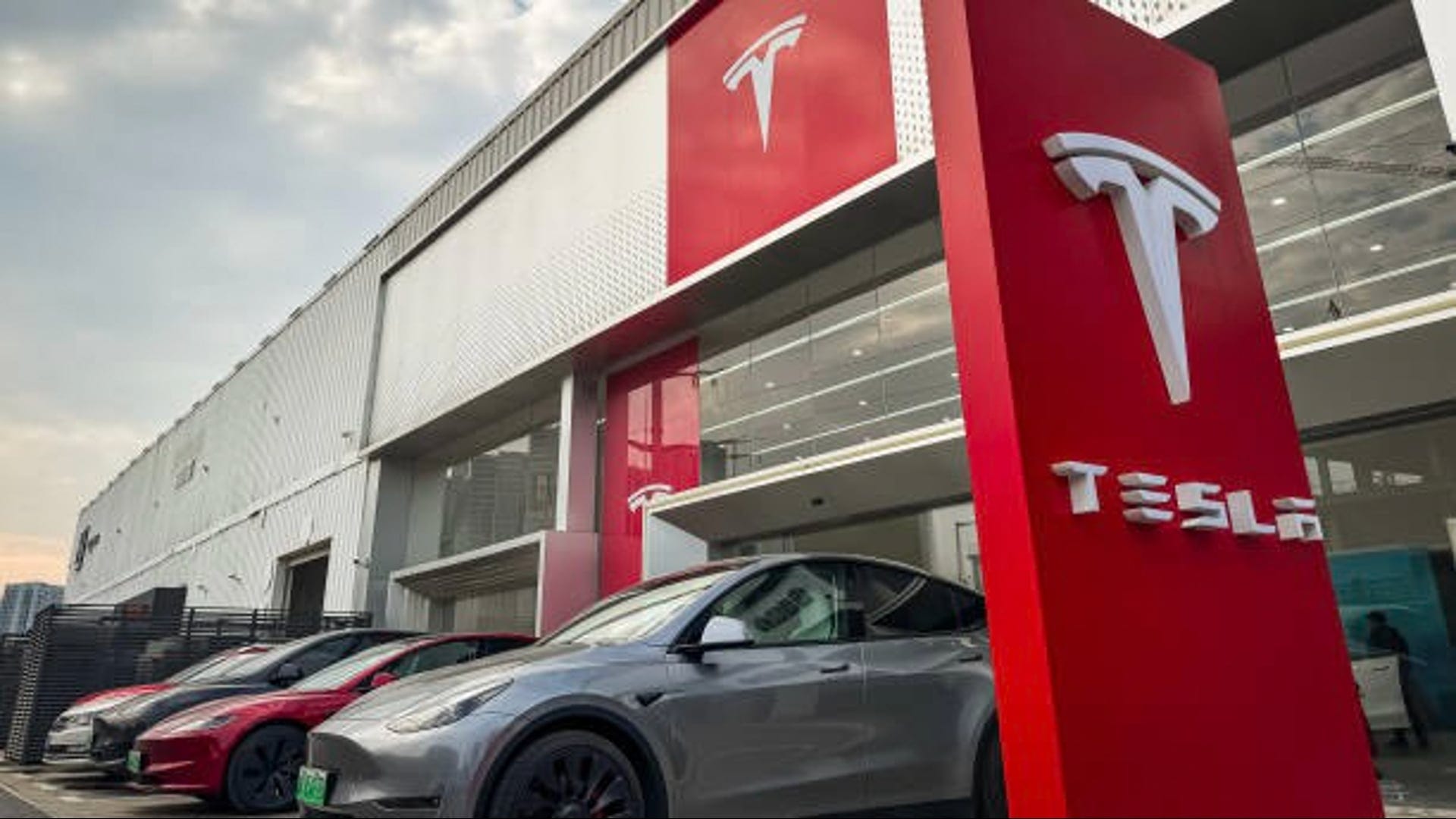Elon Musk says he'll 'advocate for lower tariffs' during Tesla earnings call

Tesla CEO Elon Musk said that he will lobby the Trump administration to ease off of its sweeping tariff regime as he appears set to step back from Washington during the company's earnings call on April 22.
"I've been on the record many times saying that I believe lower tariffs are generally a good idea for prosperity but this decision is fundamentally up to ... the president of the United States," Musk said. "I'll continue to advocate for lower tariffs rather than higher tariffs, but that's all I can do."
While Tesla assembles its vehicles in the U.S., the company is exposed to the tariffs as it imports parts from other countries.
"It is difficult to measure the impacts of shifting global trade policy on the automotive and energy supply chains, our cost structure and demand for durable goods and related services," the company said in its investor presentation.
The statement came alongside an earnings release that saw a 15% year-over-year drop in gross profit and a 20% year-over-year drop in automotive revenue. Net income for the quarter plummeted 71% year over year.
Musk tariff statement follows Navarro squabble
Musk's stated reticence for President Donald Trump's tariffs echoed the spat he had with top trade adviser Peter Navarro in the aftermath of the so-called "Liberation Day" announcement.
Musk called Navarro a "moron" and "dumber than a sack of bricks" in the days following the tariff announcement. The insults followed comments from Navarro on CNBC, where he said Musk is "not a car manufacturer - he's a car assembler."
The public squabble appeared to have been quelled as Navarro shrugged off the dispute with Musk when asked about it on CNBC, saying, "we'll speak. I'll probably see him today." White House Press Secretary Karoline Leavitt said that "boys will be boys" in a press briefing following the clash.
The spat revealed a rift among high level Trump supporters on the tariffs as Bill Ackman, an influential hedge fund manager who endorsed Trump, publicly lobbied the administration to pause the tariffs.
"The president has an opportunity to call a 90-day time out," Ackman wrote on X. "If ... on April 9th we launch economic nuclear war on every country in the world, business investment will grind to a halt, consumers will close their wallets and pocket books, and we will severely damage our reputation with the rest of the world."
Musk to step back from Trump administration amidst DOGE firestorm
Musk said during the earnings call that he would be focusing more on Telsa as the company noted that "changing political sentiment" could have an impact on product demand in the near term.
"My time allocation to DOGE will drop significantly," Musk said, later adding, "I think I'll continue to spend a day or two per week on government matters for as long as the president would like me to do so, and as long as it is useful."
Politico and ABC News reported earlier this month that Trump had told members of his Cabinet that Musk will return to the private sector, although the reports did not make clear if that would mean Musk leaving before his 130-day mandate as a special government employee.
White House Press Secretary Karoline Leavitt wrote on X, the social media platform Musk owns, that "Elon will depart from public service as a special government employee when his incredible work at DOGE is complete."
The reduction in Musk's political stature comes after a major loss for the world's richest man, who made the Wisconsin state Supreme Court race a proxy-referendum on himself. The race was won by liberal judge Susan Crawford, who said in her acceptance speech, "I never could have imagined that I'd be taking on the richest man in the world for justice in Wisconsin. And we won!"
Tesla dealerships have seen repeated protests and a pattern of high-profile owners selling their vehicles has emerged since Musk became the face of the government slashing Department of Government Efficiency. Polls from Pew Research and CNBC show roughly half of Americans have negative views of the billionaire tech mogul.